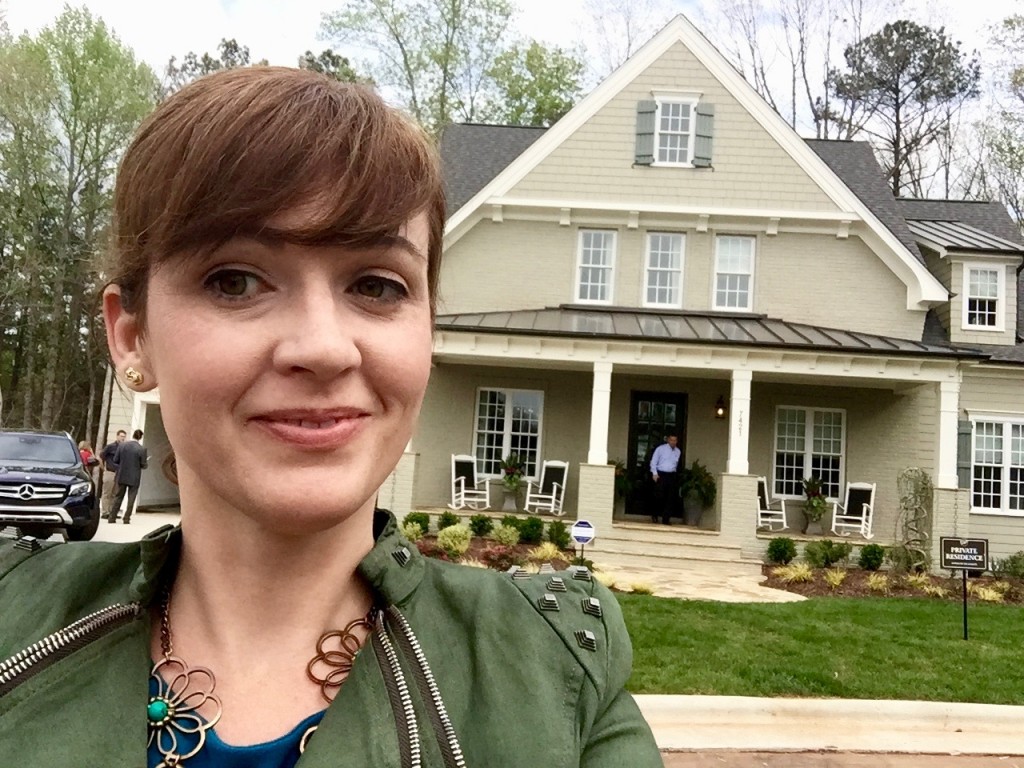
Finding the perfect home can be a deeply personal and rewarding journey. Whether you’re a first-time home buyer or a seasoned homeowner looking for a change, the process of discovering your ideal haven can be both exciting and challenging.
Here are a few steps that can help you craft the perfect home and ensure it remains a secure and reliable sanctuary for years to come.
Define your vision.
Before you embark on your quest to create an ideal home, it’s crucial to define your vision and then compare notes with your partner. It’s best to share these ideals in a non-judging way, and expect some negotiations to occur throughout the process. If you are both willing to prioritize aspects of your ideal home vision in a rank-order system, then it’s possible that both can get many of the top priorities on a joint list of must-haves.
Few things to consider as you make your vision list: What does your dream home look like? Consider factors like location, size, layout, style, and the amenities that matter most to you and your family. Creating a clear picture of your ideal living space will serve as your compass, providing direction throughout the home-buying journey. It’s also helpful as a way to narrow selections and keep everyone on track while searching.
Plus, the National Association of Realtors has a few helpful guides to make the search easier, too. Check out their guide on ‘How to Prepare for House-Hunting.’
Set a realistic budget.
A realistic budget isn’t all of the money you have plus all of the money the bank will let you loan. Buying a house is one step in the process; owning a house is also a large financial commitment. It’s best to make sure there’s a budget available after buying.
When assessing your financial situation for that perfect home, determine your budget by taking into account your income, expenses, and any existing savings or investments. Pulling out the past few years of tax returns, credit card statements, and household bills may be helpful to get a good idea of cash flow. The Consumer Finance Protection Bureau has a helpful guide for homeowners on budgeting that’s worth a look.
Be sure to consider the costs associated with homeownership, including property taxes, maintenance, and insurance. It’s very important to make sure you have appropriate insurance for your home. Home insurance provides essential protection for your investment, covering unforeseen events like fire, theft, and most natural disasters. It’s a critical safeguard for your haven, and it’s not something that should be put off until later.
Location matters so choose wisely.
The old adage, “location, location, location,” holds true when searching for the perfect home. Consider factors like proximity to places your family goes regularly and enjoys doing, like work, schools, shopping, sports facilities, and public transportation.
Think about the community and neighborhood vibes that align with your lifestyle and values. Do you prefer a bustling urban area, a peaceful suburban neighborhood, or a serene rural retreat? One way to find out which is best for your family is to rent a few different AirBNBs or VRBO homes. We’ve rented modern condos, rustic cabins, tiny houses, and suburban homes.
Your home’s location will play a significant role in your daily life and overall happiness, so choose wisely.
Work with a real estate professional.
Navigating the real estate market can seem complex, especially if you’re a first-time buyer. Partnering with a reputable real estate agent can make the process smoother and more efficient. But how do you find one? Many find a realtor through friends and family members. Some call agents based on seeing their names on signs in neighborhoods they desire. Another reliable method is searching through the National Association of Realtors.
A knowledgeable and helpful agent can identify suitable properties, negotiate on your behalf, and provide valuable insights into the local housing market. They can also help you avoid potential pitfalls, ensuring your journey to your dream home is as low stress as possible.
Consider your lifestyle.
An ideal home caters to your lifestyle and future aspirations. It’s helpful when a home can evolve to support your life, so choose a place that fits not just your current needs, but could accommodate future ones as well.
- If you love to entertain, look for a property with ample outdoor space, rooms with sliding panels to create larger spaces, or an open-concept living area.
- If you work from home, consider a dedicated office space for each family member who works from home.
- If you’re planning to expand your family with kids or aging relatives, think about the number of bedrooms and where they are located in the house. Also, access to a senior center, local parks, and the quality of nearby schools can be important for both, too.
Inspect and evaluate.
Once you’ve found a potential haven, it’s crucial to inspect the property thoroughly. Sellers are required to disclose information about the property, but it doesn’t mean that every seller is honest and that every seller knows all of the issues in a house. Keep in mind that some sellers inherit properties and never even live in them.
If you don’t know how to look for any structural issues, water damage, or necessary repairs, a professional home inspection is highly recommended to uncover any hidden problems. This step ensures that your investment remains
sound and prevents future headaches. Also, never hire the seller’s recommended home inspector. It’s best to go with someone who is an outside third party.
Another essential step to ensure that your new home remains safe is making sure it is free from termites, which can do extensive damage if left unchecked. To protect against this possibility, invest in professional termite treatment (usually termiticides or baiting systems are used) and inspection, while preventative treatments can bring peace of mind even if no infestation exists. Always hire a dependable third-party inspector for an impartial evaluation.
Ensure natural light and healthy airflow.
Anyone looking to craft their ideal haven should never underestimate the power of natural light and airflow has a huge impact on things, too. By infusing natural sources of light and air into your space, it will feel more open and inviting while creating a healthier environment for everybody.
Artificial light can be helpful, especially in the winter when the sun sets earlier. However, we try to rely on natural light as much as possible by opening shades, using a tubular skylight in spaces that don’t allow for windows, and skylights can be extremely helpful, too.
The right ventilation in places such as your kitchen is essential. Installing a high-quality range hood with fan can play a crucial role in maintaining air quality and removing cooking odors (and natural gas from stoves) from your kitchen area. Always be sure to turn on the hood fan a few minutes before cooking with gas and keep it running for a few minutes after.
One of the traditional ways to improve indoor air is opening windows for cross ventilation. When it’s not possible, or the air is not healthy due to smoke from wildfires or contaminants in the air, an air cleaner can be a huge help to create better indoor air quality when windows can’t be open.
Embrace personalization.
After buying that almost-perfect home, embrace the opportunity to personalize your space. Reflect your personality and style by painting the walls, adding custom light fixtures and hardware, and decorating with your favorite textiles and furnishings.
As well as thinking about textiles, fresh colors, and individual decor choices, you may also want to think about bigger changes you can make to your new home. Personalization can take shape in a number of different ways when it comes to adding things to your house or outdoor space.
For example, if you or your family have a particular hobby that you enjoy regularly, make sure your new home is accommodating to this. Whether you and your partner want to include a home workshop or craft zone, or you’re hoping to build a unique treehouse in your backyard for the kids or add a hunting blind like one from Stryker hunting blinds for a large outside area, there are so many different options to customize a home and property.
Your home is a reflection of your family. The more it represents your family, the more comfortable and inviting the atmosphere will be for you and your loved ones.
Build a sense of community.
Your home isn’t just a physical structure; it’s a part of a broader community. This is why I recommend attending a few local events, trying out the local restaurants, and walking to the park or school before making an offer on a house.
And after you settle in, get to know your neighbors, join local organizations, and engage in community events. Building a sense of belonging can enhance your overall living experience and transform your house into a true haven.
Regular maintenance is key.
Finally, maintaining your home is essential to preserve its value and functionality. It’s also important to maintain the house systems so the indoor air quality and overall comfort remain high for everyone inside it.
Regularly inspect and address any repairs or maintenance needs promptly. This proactive approach will save you time and money in the long run, ensuring your home remains your ideal haven.
Enjoy the process.
Crafting your ideal haven and discovering the perfect home is a personal journey that combines vision, financial planning, and practical considerations. Remember to ensure that you have the house inspected, and secure the appropriate insurance for your home from the outset, as it’s a fundamental aspect of safeguarding your investment.
By following these steps, you can transform a house into a sanctuary—a place where you can truly thrive and make lasting memories with your loved ones.
About the Author



